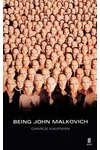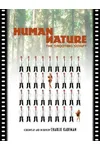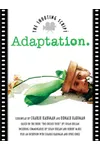Picture a screenwriter who turned the human mind into a cinematic playground—meet Charlie Kaufman! Born in 1958, this Oscar-winning visionary crafts surreal, thought-provoking stories that blend humor, heartache, and existential wonder. From Being John Malkovich to Eternal Sunshine of the Spotless Mind, Kaufman’s work redefines storytelling, inviting audiences to question reality itself.
With a knack for diving deep into the psyche, Kaufman’s films and novel Antkind explore identity, memory, and the chaos of creativity. His unique voice has left an indelible mark on American cinema and literature, making him a cult favorite and a creative icon. Ready to step into his mind-bending world?
The Making of Charlie Kaufman
Charlie Kaufman was born on November 19, 1958, in New York City, growing up in a Jewish family with a love for storytelling. After studying film at New York University, he honed his craft in television, writing for quirky shows like Get a Life. These early gigs shaped his offbeat humor and willingness to push boundaries, setting the stage for his groundbreaking screenplays.
Influenced by surrealists like Luis Buñuel and the absurdity of human existence, Kaufman found inspiration in the mundane and the profound. His leap to feature films came when he pitched a bizarre idea about a puppeteer entering John Malkovich’s mind—a gamble that became his breakout hit.
Charlie Kaufman’s Unforgettable Stories
Kaufman’s work is a kaleidoscope of surrealism, wit, and raw emotion. Being John Malkovich (1999) introduced his signature style: a puppeteer discovers a portal into the actor’s mind, sparking a wild exploration of identity and control. The film earned him an Oscar nomination and cemented his reputation as a bold innovator.
Eternal Sunshine of the Spotless Mind (2004), perhaps his most beloved work, weaves a sci-fi romance about erasing memories of a failed relationship. Starring Jim Carrey and Kate Winslet, its nonlinear narrative and heartfelt depth won Kaufman an Academy Award for Best Original Screenplay. Adaptation (2002), another gem, blurs reality and fiction as Kaufman inserts himself into a meta-story about writer’s block, earning critical acclaim.
In 2020, Kaufman ventured into literature with Antkind, a sprawling novel about a film critic unraveling a mysterious movie. His writing—whether on screen or page—tackles themes of self-doubt, creativity, and the search for meaning, all wrapped in a playful, disorienting package that’s unmistakably Kaufmanesque.
Why Charlie Kaufman Matters
Charlie Kaufman’s impact lies in his fearless exploration of the human condition. His stories don’t just entertain—they challenge viewers and readers to confront their own insecurities and dreams. By blending high-concept ideas with raw emotion, he’s inspired a generation of filmmakers and writers to take risks and embrace the weird.
His influence extends beyond awards, sparking cult followings and deep discussions about identity and art. In an industry often driven by formula, Kaufman’s originality stands out, proving that storytelling can be both profoundly personal and universally resonant.
About Charlie Kaufman
- Born: November 19, 1958, New York City
- Key Works: Being John Malkovich, Eternal Sunshine of the Spotless Mind, Adaptation, Antkind
- Awards: Academy Award for Best Original Screenplay (2004), BAFTA Awards, and multiple nominations
- Style: Surreal, introspective, and meta-narrative
Call to Action: Snag Eternal Sunshine of the Spotless Mind or dive into Antkind to experience Charlie Kaufman’s mind-bending brilliance. Your brain will thank you!





